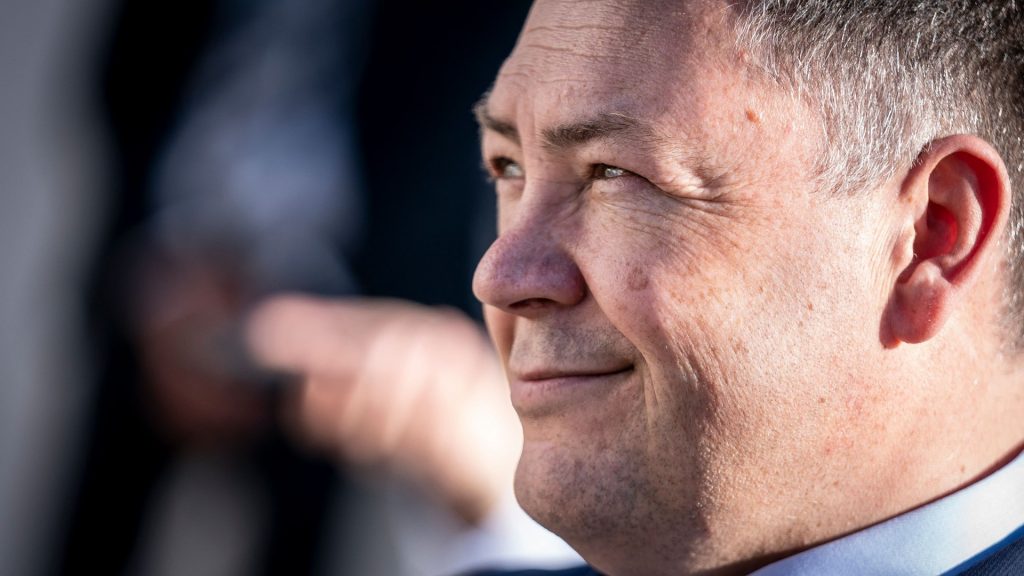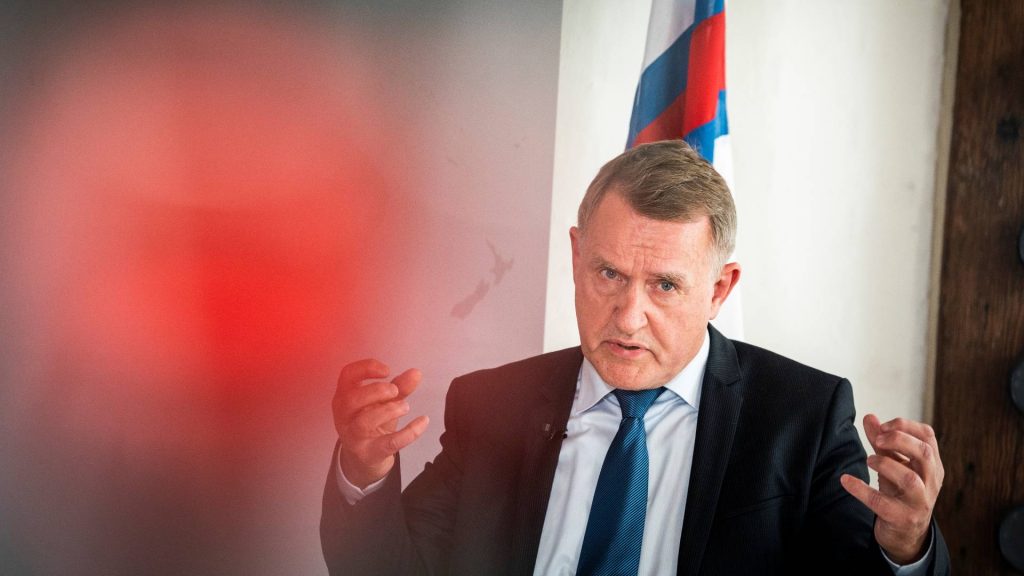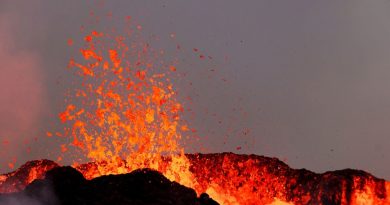Greenland’s more prominent role on Arctic Council important signal to int’l community says foreign minister

“The signal for the rest of the Arctic community specifically is that Greenland is taking its own matters into its own hands,” Pele Broberg said in phone interview with Eye on the Arctic.
“For the international community in general, it should be looked at in the spirit of UN Resolution 1514 [Declaration on the Granting of Independence to Colonial Countries and Peoples]. We are expanding our own purview and the way we’re doing business with the rest of the world. Greenland is interested in a low tension approach that is not governed by military interests, but by commercial interests.”
Greenland, with a population of 56,000 people, has had home-rule government since 1979, with Denmark responsible for things like foreign affairs and the military. Denmark also provides an annual subsidy of 4.5 billion Danish kroner (approximately $900-million CDN). Greenland’s eventual goal is independence, but is looking first to develop the economy in a way that can make up for the loss of the subsidy.
The Arctic Council is an international forum made up of the eight Arctic states: Canada, Denmark, Finland, Iceland, Norway, Sweden, Russia and the United States; and six Arctic Indigenous groups, the Aleut International Association, the Arctic Athabaskan Council, the Gwich’in Council International, the Inuit Circumpolar Council, the Russian Association of Indigenous Peoples of the North and the Saami Council.
Every two years, a ministerial meeting is held where the rotating two-year chairmanship is handed over and joint declarations are signed. Each state is also allotted five minutes to address the meeting.
Arctic Council changes in works for two years
Greenland, along with the Faroe Islands, are autonomous territories within the Kingdom of Denmark. At the ministerial, Denmark has typically divided its time between three speakers, with Denmark first, followed by Greenland and than the Faroe Islands.
On June 10, after the annual “Meeting of Realm” between Denmark, Greenland and the Faroe Islands, Danish Prime Minister Mette Frederiksen announced at a press conference that starting at the 2023 ministerial in Russia, Greenland would sign any Arctic Council declarations, instead of Denmark. She also said Greenland would now start the ministerial address, followed by the Faroe Islands, and with Denmark last.
Giving Greenland and the Faroe Islands a more prominent role in the Artic Council has been in the works for approximately two years, part of the Frederiksen government’s push for the country’s northern affairs to be more reflective of the idea of the Kingdom as having three partners in the Arctic.

The Faroe Islands said the move is an important acknowledgement of the archipelago’s role as an “active ally” on polar issues.
“After more than 25 years’ active participation in the Arctic Council, it reflects the recognition of the increased strategic importance of the Faroe Islands as a nation in the Arctic, steadily taking on a greater responsibility in circumpolar cooperation with a valuable contribution to the Arctic,” the Ministry of Foreign affairs said in emailed comment.
Future of Denmark’s Arctic Strategy?
The Kingdom of Denmark’s current Strategy for the Arctic expired at the end of 2020. The document outlined the Kingdom’s main goal as development of the Arctic for Arctic residents, peaceful cooperation and avoiding militarization in the Arctic.
A common Arctic strategy for the Kingdom on Denmark had been in the works for approximately 18 months to replace it, with a steering committee made up of representatives from Denmark, the Faroe Islands and Greenland, but work on it was significantly slowed down by COVID-19.
The work was then suspended in February when elections were called in Greenland. A new government was sworn in, in April. New Prime Minister Mute B. Egede has said that Greenland plans to develop its own Arctic strategy.
“Denmark is not an Arctic state which means that the natural next progression should be that Greenland is formulating its own Arctic strategy, which our Prime Minister also stated very clearly that we are doing,” Broberg said.
“Our Prime Minister has also said very clearly, he had no clue what was going to happen with the Arctic strategy of the Kingdom of Denmark, but he’s guaranteed that Greenland will have one.”
Broberg says the particularities of Greenland’s Arctic strategy are still being put together and details won’t be released until it’s presented at the fall parliamentary session.
Write to Eilís Quinn at eilis.quinn(at)cbc.ca
Related stories from around the North:
Canada: Canada supports greater voice for Indigenous organizations on Arctic Council, Eye on the Arctic
Finland: Finnish PM stresses importance of Arctic Council for region’s stability amidst climate change, Yle News
Greenland: Political upheaval in Greenland — What does Inuit Ataqatigiit do now?, Eye on the Arctic
Iceland: With U.S. climate drama behind them, can the Arctic Council turn the page in Reykjavik?, Eye on the Arctic
Norway: Norway’s FM confirms participation in upcoming Arctic Council ministerial, The Independent Barents Observer
Russia: Return to form for Arctic Council as Russia assumes leadership from Iceland, Eye on the Arctic
United States: Putin, Biden talk Northern Sea Route, The Independent Barents Observer



